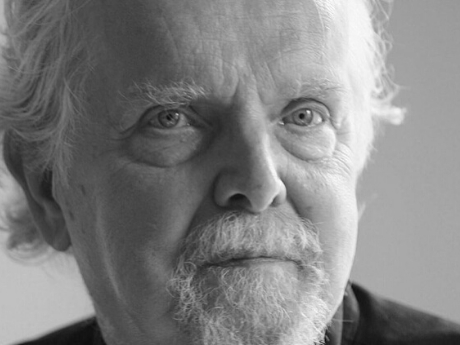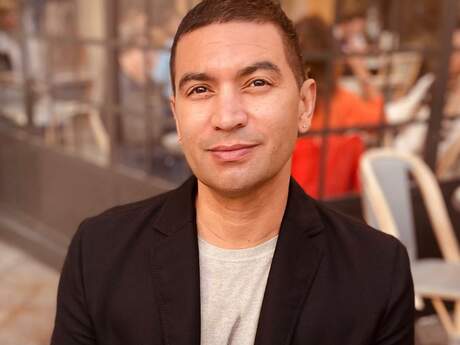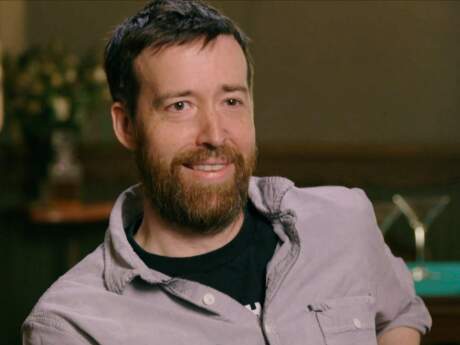Q & A: American Poetry
Q & A American Poetry: Anselm Hollo

Are there essential ways in which you consider yourself an American poet?
Having lived most of my adult life in the US of A, as a participant in an active community of [US]American poets, I have to say yes. But I prefer "american" (lower case).
When you consider your own "tradition," do you think primarily of American poets?
No, I don't. My conscious lineage includes Hipponax, Sappho, Arnaut Daniel, Walther von der Vogelweide, Francois Villon, Heinrich Heine, Guillaume Apollinaire, Pierre Reverdy, Bertolt Brecht, numerous other twentieth-century European as well as [US]American and other Western Hemisphere poets.
Do you believe there is anything specifically American about past and contemporary American poetry? Is there American poetry in the sense that there is said to be American painting or American film? Do you wish to distinguish American poetry from British or other English language poetry?
Emily Dickinson, Edgar Allen Poe, and Walt Whitman could not have written their works anywhere but in the [US]America of their day. Among contemporaries, the same applies to those in the Pound-Stein-WCWilliams-Loy-Zukofsky lineage.
"Is there [US]American poetry in the sense that there is said to be [US]American painting or [US]American film?" Yes, there is (see above).
"Do you wish to distinguish [US]American poetry from British or other English-language poetry?" Yes, I do.
Which historic poets do you consider most responsible for generating distinctly American poetics?
(I take it "historic" = "dead.") Dickinson, Poe, Whitman, Pound, Stein, WCWilliams, Mina Loy, Zukofsky, Charles Olson, Jack Spicer, Frank O'Hara, Allen Ginsberg, Ted Berrigan.
What import does regional poetry occupy in your sense of American poetry?
Personally, very little, at least the way that term is understood by provincial arts administrators.
What significance does popular culture possess in your sense of American poetry?
[US]American "popular" ( = commodity and commerce-driven) "culture" surrounds and assails us, and much of the rest of the globe, pretty damn relentlessly, and thus it is definitely part of both our exterior and interior scenery, poetic and otherwise.
What about the American poets who lived primarily in Europe (Eliot, Pound, Stein)? What about the European poets who have recently lived or worked in America (Heaney, Walcott, Milosz)?
Interesting: Walcott is "European"? You must mean his Nobel buddy Brodsky, no? I prefer Andrei Codrescu (Romania), Christopher Middleton (England), and Pierre Joris (Luxembourg) to the three overrated artistic reactionaries you list.
Are you interested in poetry written in America but not in English?
Not particularly.
Are you more likely to read a contemporary non-American poet who writes in English or a contemporary non-American poet translated into English?
That's a toss-up. And it depends on the quality of the translation as [US]American English poetry.
Do other aspects of your life (for instance, gender, sexual preference, ethnicity) figure more prominently than nationality in your self-identity as a poet?
My "identity" is mine. "As a poet," I am merely one who writes poems ( = makes things in and out of language).
Do you believe you could readily distinguish a poem by an American poet from a poem by other poets writing in English?
That would depend on the poet. Quite a few [US]American poets seem to still think of themselves as disciples of what they perceive to be the "English" tradition and are content, even proud to create plausible simulacra of their idols.
What do you see as the consequences of "political correctness" for American poetry?
I should hope it has room for 'correctness' as well as 'incorrectness,' Devil's advocacy, satire, irreverence, and attacks on smugness and hypocrisy, those pervasive [US]American vices.
What are your predictions for American poetry in the next century?
In the Utopian Millennial Wish Department, I foresee no great changes in [US]American general dominant cultural views of and attitudes toward poetry or any of the inventive arts. I wish, however, that toilers in the field of poetics oppositional to those dominant attitudes would bear in mind that they, too, often succumb to corporate culture's desire to have everything (not just poetry) clearly labeled and classified.
Published 1999.


